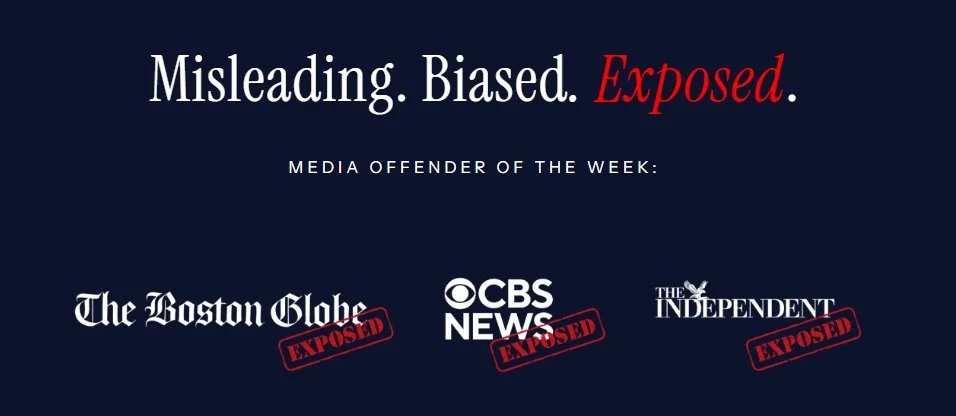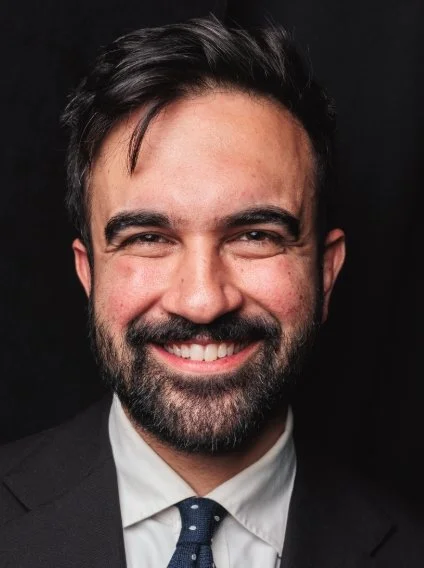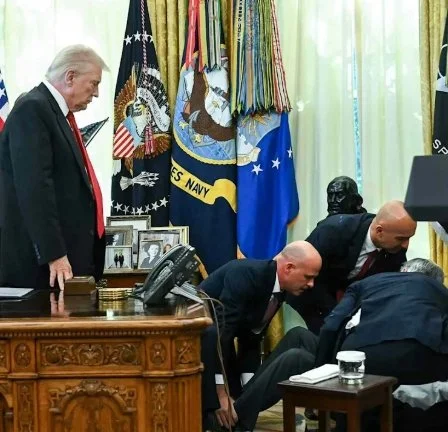Shutdown as Power Grab: How Crisis Could Feed Authoritarianism
A Dangerous Question
Could Trump use the shutdown not just as leverage, but as a path to seize more power — even to frame himself as the only solution and erode democratic checks until his authority looks dictatorial? The question is unsettling, but the answer is yes. Not because Trump can abolish Congress overnight, but because shutdown politics creates the perfect psychological and political conditions for authoritarian creep.
The danger lies in the way authoritarian leaders historically weaponize crises: prolong suffering, blame opponents, and then present themselves as the indispensable savior. Trump has already shown he thrives on manufactured chaos. A prolonged shutdown could serve as both stage and justification for a dangerous consolidation of power.
Disclaimer: This article is an speculative opinion piece that draws on historical examples, political psychology, and current events. It reflects interpretation and argument, not legal counsel or definitive prediction.
The Anatomy of Hostage Politics
Shutdowns are not simple “gridlock.” They are hostage situations. Essential services are withheld. Families, workers, and patients are treated as collateral. Leaders then insist the only way to free the hostages is to surrender to their demands.
Trump has embraced this model openly. He boasted in 2019 that he was “proud” to shut down the government over immigration. In 2025 he called the shutdown an “opportunity.” He knows the pain lands hardest on the powerless: federal workers living paycheck to paycheck, parents relying on WIC, patients depending on subsidies. For Trump, this asymmetry is the point. He does not feel the pain. That makes it usable as leverage.
Hostage politics creates two dangerous dynamics: public desperation for relief, and space for a leader to claim he alone can deliver it. Both are fertile ground for authoritarian exploitation.
Crisis as Opportunity: Historical Lessons
History shows that leaders have often transformed crises into pathways to greater power.
The Reichstag Fire (Germany, 1933): After a suspicious fire gutted the German parliament, Adolf Hitler declared a state of emergency. Civil liberties were suspended. The fire itself did not create dictatorship, but the narrative of existential crisis justified handing Hitler extraordinary powers.
The Enabling Act: Shortly after, the German legislature ceded its own authority “temporarily” to the chancellor. That temporary measure became the legal foundation of Nazi dictatorship.
Post-9/11 America: After the September 11 attacks, President George W. Bush signed the USA PATRIOT Act. It dramatically expanded surveillance powers, reduced checks on executive authority, and entrenched a permanent security state. Though not dictatorship, it shows how fear and crisis can legitimize long-term erosions of liberty.
Turkey, 2016 coup attempt: Following a failed coup, Recep Tayyip Erdoğan declared a state of emergency that lasted two years. During that time, tens of thousands of opponents were jailed, the judiciary was purged, and the constitution was rewritten to centralize power in the presidency.
The pattern is always the same: crisis creates fear, fear creates desperation, and desperation justifies the suspension of normal checks.
The Shutdown as Manufactured Emergency
Unlike natural disasters or terrorist attacks, the U.S. shutdown is entirely man-made. It exists because Congress refuses to pass appropriations, and the president uses that refusal as leverage. This gives Trump a unique advantage: he can both create and resolve the crisis.
By prolonging the shutdown, Trump maximizes public suffering. Families go unpaid, aid programs shut down, healthcare disappears. The longer this continues, the more Americans yearn for relief. That yearning can then be redirected: “Only I can end this.”
This is the authoritarian sleight of hand. Trump causes the pain, then presents himself as the only antidote. In the process, he delegitimizes Congress — the branch constitutionally empowered to control the purse — and frames himself as the true center of power.
Political Psychology: Why People Accept the Trade
Why would citizens accept greater executive power even when it harms them? Political psychology offers sobering answers.
1. Identity Over Interest
Research shows that when politics is tribalized, people will often sacrifice their own material well-being if it means protecting their in-group or punishing outsiders. A Trump supporter who loses healthcare subsidies may still cheer the shutdown if it is framed as “owning the libs” or keeping immigrants from receiving aid.
2. Motivated Reasoning
People cling to beliefs even when confronted with contradictory evidence. A supporter hurt by the shutdown may rationalize: “This suffering is necessary to fight corruption” or “It’s the Democrats’ fault.” Pain becomes reframed as virtue, preserving loyalty to the leader.
3. Authoritarian Psychology
Authoritarian followers seek strength and order in times of fear. Trump’s posture as the strongman — mocking opponents, refusing compromise, portraying himself as the fighter against “radical leftists” — provides symbolic reassurance even while material conditions worsen.
4. The Exhaustion Strategy
Constant crisis wears people down. Psychologists call it “learned helplessness.” When people feel powerless to stop repeated blows, they may give up resisting. Authoritarians rely on this. Trump knows that if he drags out the shutdown long enough, many will accept almost any solution he proposes just to make the chaos stop.
The Dictator-Level Temptation
Would Trump openly seize dictator-level power? Not in one step. Authoritarianism rarely arrives with a declaration. It creeps forward under the cover of emergency. Here is how it could unfold in the shutdown context:
Delegitimizing Congress: Trump frames Congress as broken, corrupt, incapable of governance. Every week of paralysis proves his point.
Emergency Declarations: He invokes extraordinary executive powers to “protect the people” — for example, reallocating funds without congressional approval. Precedent exists in his 2019 border wall declaration.
Selective Relief: Trump could direct aid selectively to red states or loyal districts, rewarding loyalty and punishing dissent. This deepens authoritarian patronage.
Normalizing Overreach: Each breach of constitutional norms becomes precedent. What was shocking once becomes routine.
Savior Narrative: After prolonging the crisis, Trump could announce a dramatic deal to reopen government, claiming only his strength ended the suffering. The fact that he caused it is erased in the spectacle of resolution.
By this method, he does not abolish Congress outright. Instead, he shifts the center of gravity toward the presidency, accustoms the public to executive rule, and chips away at democratic accountability.
Constitutional Fragility
The U.S. Constitution was designed with checks and balances. Article I gives Congress the power of the purse. The Antideficiency Act prevents spending without appropriations. But laws are only as strong as the will to enforce them.
If Trump defies Congress in an emergency and funds programs by executive decree, who will stop him? A Supreme Court that has already been reshaped by conservative appointments? A Congress paralyzed by division? A public exhausted by crisis? The guardrails exist on paper, but in practice, enforcement requires political will that may not materialize in time.
History shows democracies often die not with one coup but with a slow erosion of norms. Hungary, Turkey, Venezuela, the Philippines — each began with leaders stretching the rules in crises until the rules bent permanently.
What the People Can Do
The bleak picture is not inevitable. Citizens have power if they recognize the danger.
Name It: Call shutdown politics what it is — hostage-taking. Do not accept the language of “gridlock” or “compromise.” Extortion must be exposed.
Tell Human Stories: The costs must be visible. Every mother turned away from WIC, every worker missing a paycheck, every patient losing care — these stories cut through propaganda.
Demand Congressional Backbone: Pressure representatives not to cave. Capitulation now entrenches hostage politics forever.
Defend Institutions: Refuse to accept executive overreach as normal. Every unconstitutional grab must be challenged in courts, legislatures, and the public sphere.
Organize Locally: Grassroots action — unions, churches, civic groups — is harder to dismiss as partisan. Collective community voices can demand accountability.
Remember and Retell: Do not let the crisis fade from memory. Authoritarians thrive on amnesia. Every act of cruelty, every life lost, every abuse of power must be documented and retold.
Simply Put
The shutdown of 2025 is more than a budget fight. It is a demonstration of how manufactured crisis can be turned into authoritarian opportunity. Trump does not need to declare dictatorship to achieve dictatorial power. He needs only to prolong suffering, shift blame, and present himself as the sole solution.
This is the danger. Government dysfunction becomes his evidence. Public despair becomes his leverage. And every concession made to end the suffering becomes a step closer to executive domination.
The warning is unflinching: if citizens accept this cycle, if leaders normalize it, the shutdown may be remembered not just as an economic wound but as the moment when American democracy began to give way to authoritarian rule.
The choice is stark. Submit to hostage politics and watch power centralize in one man’s hands. Or resist, demand accountability, and insist that government serve the people rather than sacrifice them.
No more hostages. No more excuses. Democracy will not survive unless the people themselves refuse to let it die.
Sources
At federal agencies, political messages fault Democrats for the shutdown - ABC News
‘A dark day for our country’: Democrats furious over Trump bill’s passage | Democrats | The Guardian
Firing allowed, training is not: Trump administration shares shutdown plans | Reuters
PREPARED REMARKS: Sanders on the Worst Bill in Modern U.S. History » Senator Bernie Sanders
House Bill Seen Causing 51,000 Preventable Deaths Annually - Penn LDI
KFF - The independent source for health policy research, polling, and news.









